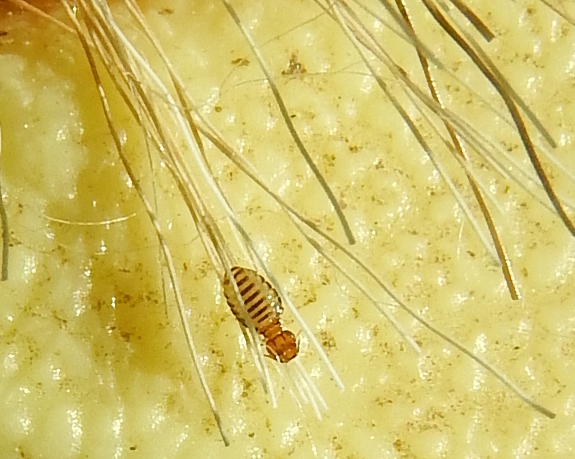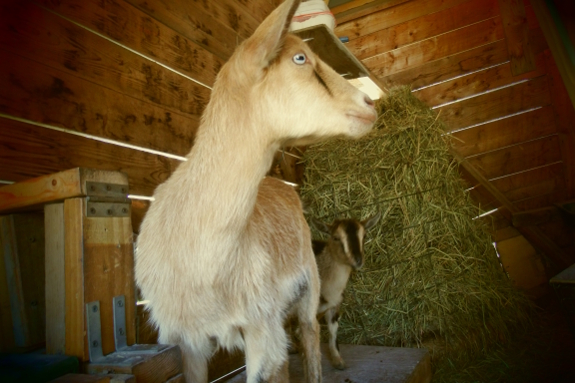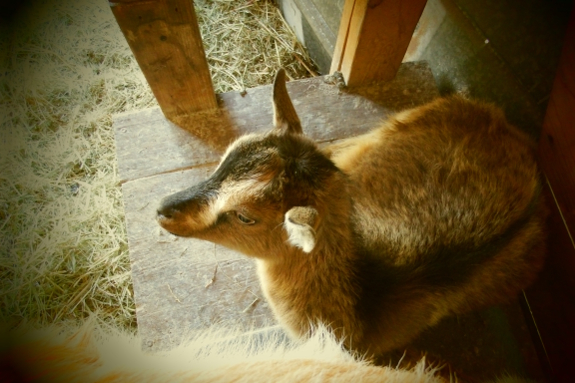
Biting lice on goats

The first step in
dealing with Aurora's
biters was to figure out what exactly is chewing on her. After
combing through her hair in bright sunlight for a while, I finally
discovered small, slow-moving brown spots. Clipping a bit of hair plus
biter then photographing and zooming way in on the resultant image
resulted in a diagnosis --- biting lice (Bovicola
caprae/Damalinia caprae).

Various natural
treatment methods exist for lice on goats, but all either seem too
invasive to me or have proven ineffective. On the ineffective front,
diatomaceous earth did absolutely nothing to hinder Aurora's lice
despite brushing gobs of it into her hair for multiple days running. On
the invasive front, soaking your animal in any liquid (including water)
and keeping her wet for six hours will kill nearly all lice...good luck
with that. Shearing is also effective at removing 30 to 50% of lice,
with most of the rest naturally dying as they're exposed to
weather...but we have a cold spell coming up and I don't think our
goats would enjoy being sheared.

So, chemicals it is. The
internet is mixed on mainstream methods of treatment, but one extension
agent site says that the ivermectin or moxidectin dosages that work on
sucking lice aren't effective against biting lice. Instead, they
recommend treating with permethrin, which comes in various brand names
and application patterns. Of these, Ultra
Boss is labelled for
use on goats as a pour-on (meaning you can apply in a strip down the
animal's back like cat or dog flea meds). That seems the least
invasive, so we're going to give it a shot --- treat once, then wait
two weeks and treat again. Fingers crossed poor Aurora will stop
stamping and scratching in the near future.
Want more in-depth information? Browse through our books.
Or explore more posts by date or by subject.
About us: Anna Hess and Mark Hamilton spent over a decade living self-sufficiently in the mountains of Virginia before moving north to start over from scratch in the foothills of Ohio. They've experimented with permaculture, no-till gardening, trailersteading, home-based microbusinesses and much more, writing about their adventures in both blogs and books.
Want to be notified when new comments are posted on this page? Click on the RSS button after you add a comment to subscribe to the comment feed, or simply check the box beside "email replies to me" while writing your comment.

There are natural oil combos that will help prevent and kill lice Peppermint; Lavender; Rosemary & Melaleuca -Young Living Essential Oils You might have some of them.
Thanks to everyone for your feedback!
Su --- That's really good advice. Actually, I'm 99% sure that Edgar is the one who brought the lice to our farm in the first place, so I was definitely going to treat him as well. But it's good to know that whole-herd treatment is the established procedure even if he had seemed lice-free! What kind of insecticide did you treat with? Did it wipe out the infestation?